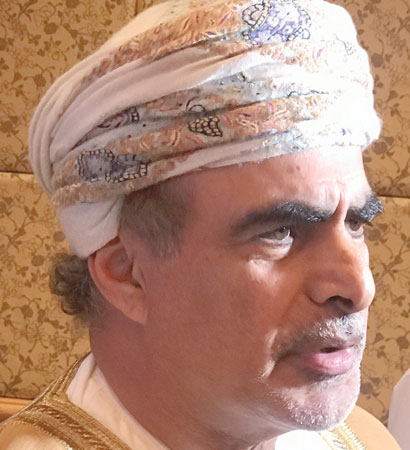

MUSCAT, MARCH 31 -
Notwithstanding government-led efforts to diversify the economy away from its long-standing dependence on oil and gas revenues, the hydrocarbon sector is expected to continue to play a prominent role in driving growth for at least another 20 years, according to Dr Mohammed bin Hamad al Rumhy (pictured), Minister of Oil and Gas.
Dr Al Rumhy made the assertion at the opening of a key Oil & Gas forum held in the city last week.
Participating in a panel discussion on the Energy Sector’s Role in Sustaining and Expanding Socioeconomic Development, the official said the Sultanate, despite earnest and ongoing efforts to wean itself away from hydrocarbons, is unlikely to shrug off this vital sector for the foreseeable future.
“The next 20 years or so look very promising in terms of resources and opportunities to produce more hydrocarbons in the country,” said Dr Al Rumhy, underscoring the continued predominance of Oil & Gas despite moves towards diversification of energy away from hydrocarbons. He nevertheless stressed in this regard the energy sector’s keen interest in embracing renewable and alternative energy sources wherever it makes economic sense.
Highlighting the dilemma facing the country, Dr Al Rumhy said: “Going forward, we face two difficult issues: One — how can we stay away from hydrocarbon based dependence, and Two — the baby-boomers of the 80s and 90s are now looking for jobs. We want to balance our budget, continue to provide social programmes like education, health, infrastructure and so on, and yet we want to stay out of an oil-based economy. That is not easy!” he warned.
Significantly, the hydrocarbon sector continues to ensure the best returns on any investment, the official pointed out. “In Oman, the cost of producing oil is around $20 per barrel, and we are selling it for $60 per barrel — that is good business. I can’t think of any other business that gives this kind of return this fast. And even when we discuss with operators about the payback period, it doesn’t go beyond six months.”
Technology, while helping modernise the industry, comes bundled with its own share of challenges, he pointed out. “Many tasks are now done in a fraction of the time compared to a few years ago. For example, we can come up with a new Field Development Plan (FDP) in a few days, and with a handful of people, because of the power of technology. We require less people to do a task compared to labour requirements of the past.
Likewise, with Artificial Intelligence and automation, we require less people at a time when we are looking to create more opportunities for our young people, while also trying to generate revenue for the country.”
Also participating in the panel discussion were Raoul Restucci, Managing Director — Petroleum Development Oman (PDO); Berislav Gaso, Executive VP — E&P, MOL Group; and Alessandro Puliti, Executive VP — Reservoir & Development Projects, ENI. The discussion was moderated by Bassam Fattouh, Director Oxford Institute for Energy Studies, University of London.
Oman Observer is now on the WhatsApp channel. Click here



